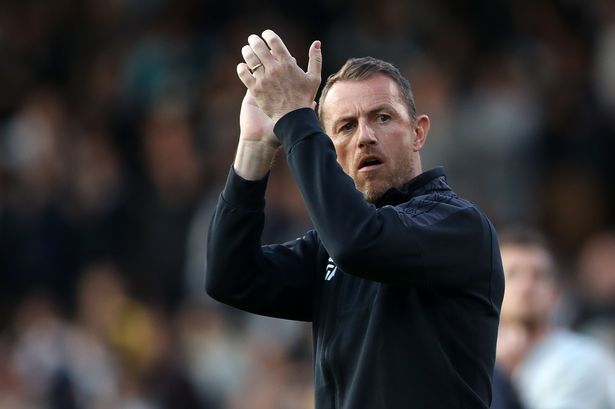The adage “the first 10 games give you an indication of how the league table is shaping up” is frequently used, however it’s not always accurate. However, it does provide you with a respectable amount of data and proof that gives you an idea of where you’re at. It can be a bit of a false reading if you have a strong start and win the first two or three games, but then one or two things go your way.
However, ten games is a great opportunity to take stock. You examine the information, your preferred strategy, and any gaps. Are you producing enough? Do you allow too many goals to be scored? Are you giving up too many opportunities? Are you depending so much on one or two players that you may need to consider what might happen if they get hurt?
You’ll examine a variety of aspects, frequently focussing on your strengths and areas for improvement. However, that brings you to the recruitment process before the January window. Most managers almost want to return to focussing on football after finishing so much work in the summer. However, you begin to look ahead when you hit the 10-game milestone.
The players that the recruitment staff has gathered will be the first thing you see. They’ll put in the effort and may even show you five players in the spots you’re considering.
From a data and profile standpoint, they will refine that. After that, you and your coaching staff will begin examining them, and the next step will be determined. You’re constantly attempting to anticipate where your team should be and potential issues that may arise.
Part of the problem is that. Most agents will call football directors and recruitment heads during this transitional phase, which is likely to last until December. They will then begin to rely on you and toss players at you as the window draws near.
However, the majority of clubs currently operate with both internal and external scouts in each recruitment department. After that, they not only watch live sports but—more importantly—make use of the data. “All right,” they will respond, “we believe that the system needs a creative right back, for instance.”
After that, they will approach a data source and request, “Give me the 20 best creative right-backs suitable for the Championship.” After that, they will attempt to supply it. Then, you have a solid beginning list of 20. You always give the management a partial list based on the scouts’ subjective judgements and the data.
I would always want that list to be made early in my career as a manager. You can check the calendar to see if you can go and watch them live, but I prefer to watch small snippets of players to get a sense and flavour.
You may occasionally be shown two players you like, but they may not be accessible or may be too costly. However, the hard work of recruitment before December is primarily done by the football directors and the scouting department.
Data has been used for many years. Data was used to determine the strategy when I played at Cambridge for the first time. As a player at Derby when Steve McLaren was a coach and Prozone first arrived, I witnessed data.
However, that progresses and gets increasingly important every year. When I was Derby’s manager, we had an agent-led recruitment staff that used some data but mostly would have been out on the fields watching games.
The data is becoming more and more crucial, and the agent portion of it is now dialling back a little till the very last minute. I believe that clubs’ heavy reliance on statistics poses a risk since, as we must keep in mind, it cannot assess leadership, character, or decision-making.
However, if you look at the game as it is currently, there is no question whatsoever that the amount of data is enormous. It is enormous in terms of getting ready for your opponent, analysing the performance of your own team, planning games, and recruiting.
Some supervisors are indifferent to hiring. They prefer that the hiring team just select the most qualified candidate for the role. However, I would like to participate in that procedure.
Now that teams have transfer committees of three or four members, I respect that the manager or head coach won’t have the sole say and that there are other options.
This is due to the manager’s inability to simply sign former employees or players with whom he may have connections through agencies. Therefore, I believe that there is some objectivity regarding how clubs wish to operate. However, because you can observe a player’s behaviour off the ball, his reactions to specific situations, his interactions with teammates, and other things, I would always want to watch them. There are numerous important factors.
Narcis Pelach joined Stoke after the window closed, but as a new coach working under Jon Walters, who is well-versed in the team, they have a sense of the path the team wishes to take. When the new head coach took over, they were very clear about that. The club would probably keep a close eye on a number of players and possibly sign a few of them. That process would include narcissism.
However, I believe he was hired to teach and develop players, and it’s possible that they will collaborate. Perhaps now is the time for Stoke to try to have a settling phase when the coach can work with the players, since the club has brought in a number of loan players, younger players, and players from overseas.
It would seem to me from the outside that they could want some real continuity and concentrate on getting the most out of the players, though of course it could be the exact reverse. The question of whether January is a good time to strengthen is hotly debated, and it’s possible to make a mistake. I think back to my time with Johnny Russell and Chris Martin at Derby. At that time, we came in second, and it was clear that they both wanted to participate.
I appreciated that Johnny was eager to travel to America because it was an opportunity he had always desired.The decision was quite difficult because Chris wanted to play more. Morally, you believed that rather than waiting until the end of the season, you had to let these players go and play. In hindsight, I ought to have been more self-centred and refused to let them leave until the end of the season. Let’s make an effort to get the promotion we desire. At that time, we were headed towards it, and they could leave.
However, Derby, who are doing well, have a true sense of unity within the team. Their performances have been quite steady, and they are a formidable team.
So, once more, do you value maintaining your current team over adding new players? Do you have a striker that, all of a sudden, makes the other strikers feel as though they won’t play, which could lead to negativity? The situation is always challenging, and determining the best course of action is never easy. Did it affect our season with Johnny and Chris? Of course. It takes a while for new members of a team to get comfortable and establish themselves.
Jerome, Cameron, wasn’t the type to just show up and join the team; he was a rather determined man. He had a big personality and arrived right away. All of the players must have a genuine balance of chemistry with one another. We had Vydra and Kasey Palmer, both of whom were excellent choices, but now you’re attempting to include them on the team.
You can only ever evaluate yourself when you look back and ask yourself, “Well, if I had to do it over, what would I do?” And if I could go back in time, I would have continued with the same team. We could have experienced the same situation. However, I believe we won one out of eight games following the window, so it obviously had an impact somewhere. As a manager, you live and die by your moral convictions, yet sometimes you have to do what you believe to be right.



